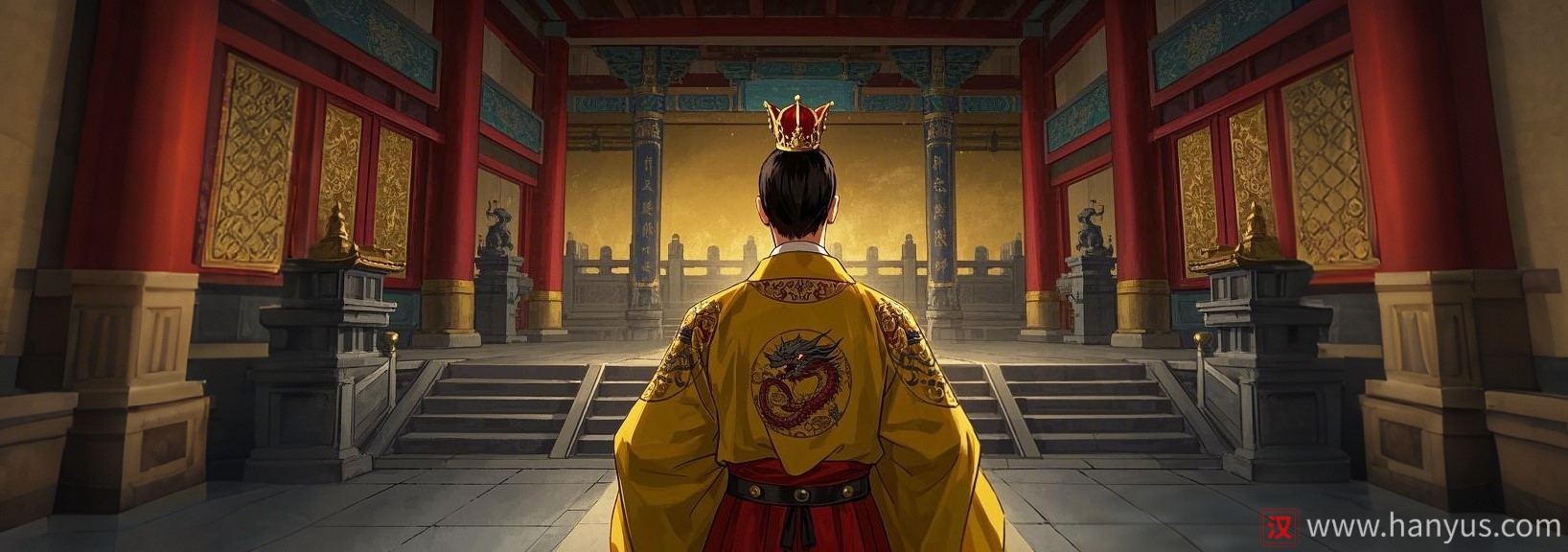Preface: Huang Di (皇帝) is the title of the highest ruler during the Chinese imperial period. Qin Shi Huang Ying Zheng was the first emperor of China and referred to himself as the “First Emperor”. The title of emperor has been used for over 2000 years.
中国上古时候 , 羲皇伏羲 、 娲皇女娲 、 黄帝轩辕 、 炎帝神农 , 他们不是真正的皇帝 , 只是部落或部落联盟的头儿 。 后人给他们加上了 “ 皇 ” 或 “ 帝 ” 的名号 。
In ancient China, Xi Huang (Fu Xi), Wa Huang (Nu Wa), Huang Di (Xuan Yuan), and Yan Di (Shen Nong) were not real emperors, but only leaders of tribes or tribal alliances. Later generations added the titles of ”Huang” or ”Di” to them.
夏朝的君主叫 “ 后 ”, 商朝的君主叫 “ 帝 ”, 周朝的天子叫 “ 王 ”。 到了战国时期 , 很多诸侯都自己称王 , 但还尊周天子为 “ 天王 ”。
The rulers of the Xia Dynasty were called ”Hou”, the rulers of the Shang Dynasty were called ”Di”, and the sons of heaven of the Zhou Dynasty were called ”Wang”. During the Warring States period, many vassal states claimed the title of king, but still respected the son of heaven of the Zhou Dynasty as the ”Tian Wang”.
秦王嬴政统一了中国 , 觉得自己功劳大 , 就创造了 “ 皇帝 ” 这个词 , 作为最高统治者的称号 , 并自称 “ 始皇帝 ”。 从那以后 ,“ 皇帝 ” 就成了中国封建社会最高统治者的称呼 。
Qin Shi Huang unified China and felt that he had done great deeds, so he created the term ”Emperor” as the title for the supreme ruler and called himself the ”First Emperor”. From then on, ”Emperor” became the title for the supreme ruler of China’s feudal society.
皇帝是中国的老大 , 权力最大 , 大家都得听他的 。 皇帝自称 “ 朕 ”, 别人当面叫他 “ 陛下 ”、“ 圣上 ” 或 “ 万岁 ”, 私下里会尊敬地称他为 “ 圣人 ”、“ 大家 ”、“ 官家 ” 或 “ 至尊 ”。
The emperor was the leader of China, with the greatest power, and everyone had to listen to him. The emperor called himself ”Zhen”, and others addressed him as ”Your Majesty”, ”Holy One”, or ”Long Live the Emperor” to his face, and respectfully called him ”Sage”, ”Everyone”, ”Official Family”, or ”Supreme One” in private.
通过阅读中国神话、民间故事、历史典故、人物传记学汉语,简单易学,中英对照,适合初学者!
Learning Chinese through reading Chinese mythology, folk stories, historical allusions, and biographies is easy to learn and bilingual, suitable for beginners!
